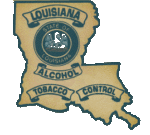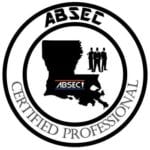
Exploring Alcohol Culture in Louisiana
Exploring Alcohol Culture in Louisiana
Louisiana’s unique alcohol culture is as vibrant and diverse as its heritage, blending French, Spanish, African, and Native American influences into a rich social and cultural tapestry. Unlike many places in the United States, Louisiana boasts a liberal approach towards alcohol, highlighted by relaxed laws and a deep-seated tradition of communal celebration. This culture is perhaps nowhere more tangible than in the bustling streets of New Orleans, yet it permeates through every corner of the state, from the small-town festivals to the sun-drenched porches of Acadiana.
History and Legal Landscape
The history of alcohol in Louisiana is intrinsic to its identity, dating back to the earliest days of its settlement. French and Spanish colonists brought with them a tradition of wine and spirits, which was quickly integrated into the local culture. This history has also influenced the state’s liberal alcohol laws. Unlike many of its neighbors, Louisiana allows the sale of alcohol in a variety of settings, including grocery and drug stores. Moreover, New Orleans, Louisiana’s cultural epicenter, is famous for its lack of open container laws, allowing for the famous go cup – a drink in a plastic cup that can be taken to-go.
The Role of Alcohol in Louisiana Culture
Alcohol plays a pivotal role in Louisiana’s communal celebrations. Mardi Gras, perhaps the most famous of these, sees the streets of New Orleans and beyond fill with revelers partaking in what is arguably the largest free party on earth, with parades, music, costumes, and, of course, copious amounts of alcohol. This tradition of celebration extends to music festivals, crawfish boils, and Sunday brunches, where drinks such as the Bloody Mary and the Sazerac, a local creation, are enjoyed.
Local Specialties
A discussion of Louisiana’s alcohol culture would not be complete without mentioning its local specialties. The state is known for its contribution to the cocktail world, with the aforementioned Sazerac, the Ramos Gin Fizz, and the Hurricane being notable examples. These drinks, often enjoyed in the French Quarter’s historic bars, add a flavor to the local culture that is as distinct as the region itself. Additionally, Louisiana has a burgeoning craft beer scene, with breweries scattered across the state offering a wide array of styles, from traditional lagers to innovative craft blends that reflect the state’s culinary diversity.
Festivals and Events
Festivals and events throughout the year offer a window into Louisiana’s alcohol culture. The New Orleans Wine and Food Experience and the Tales of the Cocktail are events that attract enthusiasts from around the world, offering tastings, seminars, and the chance to experience the state’s rich culinary and mixology traditions. These events, along with local festivals celebrating everything from jazz to seafood, provide an opportunity for locals and visitors alike to indulge in the communal spirit that defines Louisiana.
In conclusion, Louisiana’s alcohol culture is a vibrant part of its overall cultural identity, embodying a spirit of celebration, community, and culinary excellence. From historic cocktails to liberal drinking laws, and from Mardi Gras to local craft breweries, the state offers a unique experience that attracts visitors from around the globe, eager to partake in its lively traditions.















